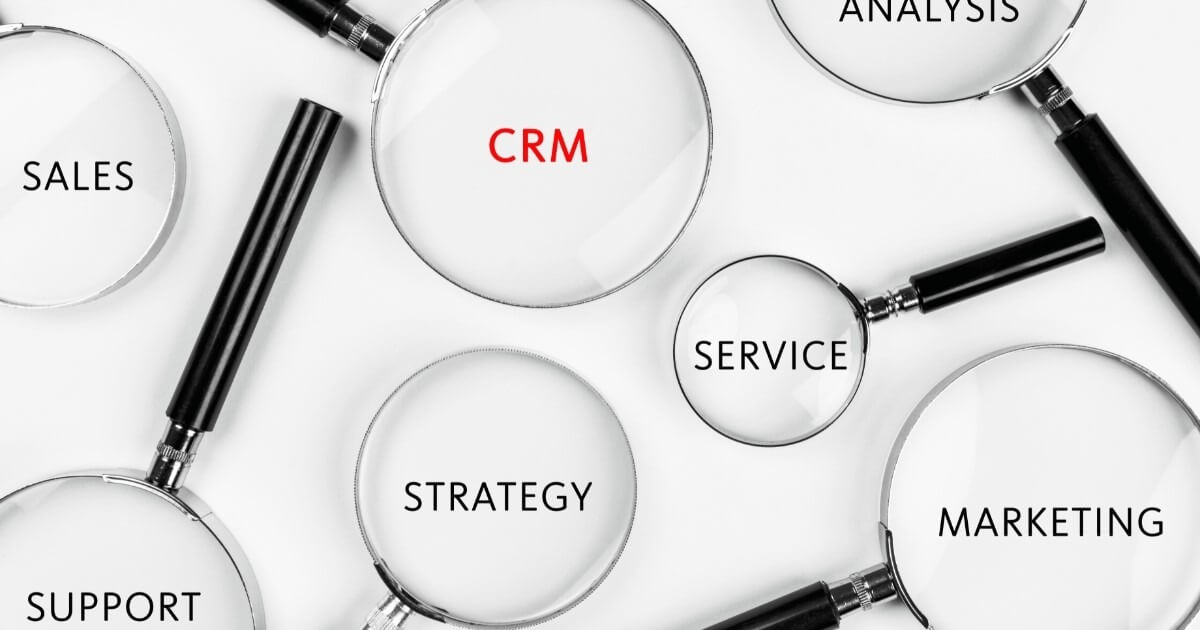9 Signs Your Business Needs a Custom CRM Solution
Customer relationships are the foundation of any successful business. However, as companies grow, managing customer interactions, sales pipelines, and internal processes becomes increasingly complex. While off-the-shelf CRM solutions offer basic features, they often fail to address specific business needs, leading to inefficiencies and missed opportunities.
A custom CRM solution is explicitly designed to align with your business workflows, ensuring seamless operations and better customer engagement. But how do you know when it’s time to invest in one? Here are the key signs your business needs a custom CRM.
What Is a CRM Solution?

A Customer Relationship Management (CRM) solution is a software system designed to help businesses manage customer interactions, sales, and support processes in a structured and efficient way. It acts as a central hub, consolidating customer data, automating workflows, and providing valuable insights into customer behavior to improve decision-making and business performance.
CRM systems can be broadly categorized as operational, analytical, or collaborative, each serving different business needs. The evolution of CRM has been marked by the increasing integration of digital marketing and data analytics, making it an indispensable tool for modern businesses.
CRM software has seen rapid adoption in recent years. Experts predict the CRM market size will grow from $254.89 billion in 2024 to $298.61 billion in 2025 at a compound annual growth rate (CAGR) of 17.2%.
What are the Key Features of CRM Software?

While many businesses start with a standard CRM, a custom CRM solution ensures that all tools and processes are built specifically for your business needs, improving efficiency and customer satisfaction. Some of the main features of a CRM software include:
- Contact and Lead Management: Stores customer and lead information, tracking every interaction.
- Sales Pipeline Management: Automates follow-ups and tracks deals in progress.
- Marketing Automation: Helps with targeted campaigns, email marketing, and audience segmentation.
- Customer Support Management: Organizes support tickets and inquiries.
- Analytics and Reporting: Generates reports to monitor performance and optimize decision-making.
Why Your Business Needs a CRM Solution
1. Your Current CRM Feels Like a Roadblock
Many businesses start with spreadsheets or generic CRM solutions, but these solutions can become restrictive as operations expand. Lack of customization, slow processing, or difficulties integrating with other tools are signs that your software is holding you back.
While many companies have integrated them into their operations, many CRM platforms are outdated and cannot keep up with the rapidly shifting digital landscape. In contrast, a custom solution is built with your business needs in mind:
- Designed to fit your exact business structure and workflows.
- Integrates seamlessly with tools like accounting software, marketing platforms, and inventory management systems.
- Automates time-consuming tasks, increasing productivity.
2. Your Customer Data Is Scattered and Disorganized
If customer details are stored in multiple systems, making it hard to track interactions and purchase history, you’re likely losing valuable insights. Inconsistent or outdated customer information can result in poor customer service and lost sales.
According to a recent survey, 50% of companies using CRM software reported difficulties accessing customer data across marketing, sales, and service systems. This is how a custom CRM can be a game-changer:
- Centralizes all customer data in one place for real-time access.
- Provides a 360-degree view of customers, including previous interactions, purchases, and preferences.
- Uses AI-powered insights to track customer behavior and predict future needs.
3. Your Sales and Marketing Teams Are Not Aligned
When sales and marketing teams operate in silos, businesses suffer from miscommunication, inconsistent messaging, and lost opportunities. A CRM that doesn’t effectively support both teams leads to inefficiencies and duplicated efforts.
This is how custom CRM facilitates teamwork and alignment:
- Provides shared access to leads, customer data, and campaign performance metrics.
- Automates lead tracking, follow-ups, and personalized marketing campaigns.
- Ensures a seamless transition from marketing to sales for a better customer experience.
4. You Lack Advanced Reporting and Insights

Making data-driven decisions can be difficult if your current CRM provides limited or generic reports. In today’s competitive market, businesses need real-time insights to track sales performance, customer trends, and operational bottlenecks.
A well-optimized CRM provides actionable insights that drive better decision-making. Here is how custom solutions can improve data analysis:
- Uses heatmaps and session recordings to track customer behavior.
- Identifies bottlenecks in the sales funnel and suggests improvements.
- Provides AI-powered forecasting to predict customer needs and sales trends.
- Offers customized dashboards and reports tailored to your business metrics.
- Uses data visualization tools to make insights clear and actionable.
- Automates reporting, saving time and ensuring accuracy.
5. Your Business Has Unique Workflow Requirements
Off-the-shelf CRMs often require businesses to adapt their processes to fit the software’s limitations. Reports show that some main challenges companies face using a CRM system are a lack of system customization and difficult integration with other systems.
If your operations involve complex workflows, compliance requirements, or industry-specific needs, a custom CRM is essential:
- Adapts to your existing workflows instead of forcing you to adjust to the software.
- Automates multi-step approval processes and compliance checks.
- Ensures seamless coordination between different departments.
- Integrates with other existing systems.
6. Your Customer Service Is Falling Behind

If your customer support team struggles to manage inquiries efficiently, it may be due to a lack of streamlined communication and data access. Slow response times and unresolved issues can damage customer relationships.
In contrast, a custom solution can streamline the customer communication and improve satisfaction:
- Implements automated ticketing and case management for efficient resolution.
- Provides support agents with instant access to customer history.
- Enables AI-driven chatbots and self-service portals to improve response times.
7. Your Business Is Scaling Rapidly
Growth brings new challenges, and if your current CRM can’t scale with your business, it may lead to inefficiencies in sales tracking, customer management, and internal communication.
A custom CRM is designed to be future-proof, allowing your business to adapt to evolving market demands and technological advancements:
- Supports increasing customer volumes without performance slowdowns.
- Adapts to new business models, products, or services.
- Grows with your company without requiring costly upgrades or additional licenses.
8. You Need Better Security and Compliance Features
Industries such as finance, healthcare, and legal services require strict data security and compliance measures. A generic CRM may not provide the level of security your business needs, while a custom solution can help you ensure compliance and protect sensitive data:
- Implements role-based access control to restrict sensitive data.
- Ensures compliance with industry regulations (GDPR, HIPAA, etc.).
- Encrypts customer data for enhanced security.
9. You’re Missing Personalization and Automation

Modern consumers expect businesses to provide personalized experiences based on their preferences and behavior. If your current CRM lacks automation and personalization features, you could miss engagement opportunities.
An AI-powered CRM system can open new doorways to hyper-personalization and automated processes:
- Enables dynamic product recommendations based on past purchases.
- Automates behavior-triggered emails and follow-ups.
- Supports geo-targeted offers and promotions.
- Improves customer retention.
What are the Costs of a Custom CRM?
While the initial investment in a custom CRM may seem significant, the long-term ROI through increased efficiency and customer satisfaction often far outweighs the costs.
While transitioning to a custom CRM can seem daunting, the process can be smooth and efficient with proper planning and a reliable development partner.
Is It Time for a Custom CRM?
If several of these signs sound familiar, your current CRM might be holding your business back. A custom solution gives you the flexibility, automation, and AI-powered insights to improve efficiency, strengthen customer relationships, and scale with confidence.
At Mejix, we build custom CRMs and software solutions designed around your business—not the other way around. From CRM and ERP systems to eCommerce platforms and mobile apps, we create and maintain technology that works for you.
Let’s build the right solution for your business. Contact Mejix today to explore a custom CRM that fits your needs.












